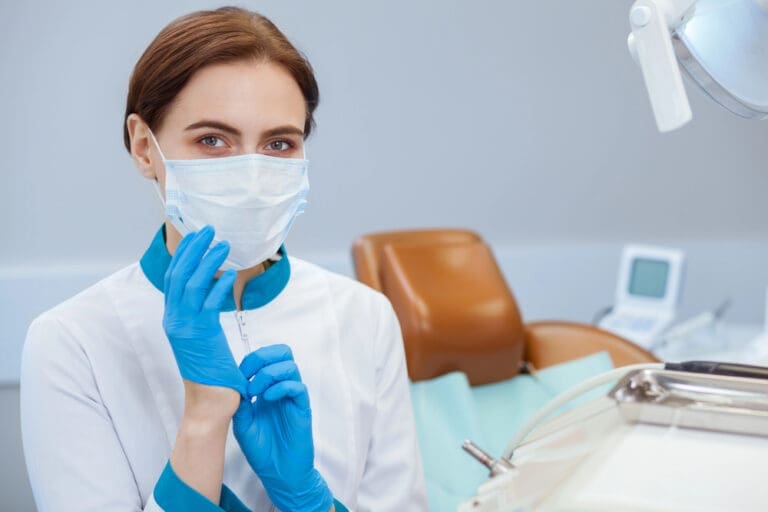What is preventive dental care, and why is it considered essential for maintaining oral health? It involves practices aimed at maintaining healthy teeth and gums to prevent the onset of dental issues. This approach generally includes regular dental check-ups and maintaining good oral hygiene.
Understanding Preventive Dental Care Basics
Preventive care encompasses a range of practices aimed at maintaining healthy teeth and gums before any issues can arise. This proactive approach to dental health focuses on regular maintenance and monitoring to ensure the longevity of your oral health. By engaging in preventive care, individuals can significantly reduce the risk of developing cavities, gum disease, and other dental problems. This type of care typically involves routine dental check-ups, cleanings, and the monitoring of one’s oral hygiene habits.
The essence of preventive dental care is to maintain optimal oral health throughout an individual’s life. Regular visits to a dentist play a crucial role in this, as they allow for the early detection and management of potential issues. Understanding the importance of these practices is essential for anyone looking to preserve their dental health for years to come. For more detailed information, you can read about What Is Preventive Dentistry.
Preventive Dental Care: The Role of Regular Dental Visits
Regular dental visits are a fundamental aspect of preventive dental care. These routine check-ups serve as a critical platform for dentists to assess the overall health of your teeth and gums. During these visits, dental professionals perform comprehensive examinations that can detect early signs of oral health issues such as tooth decay, gum disease, and even more complex conditions that might require closer observation or management.
Moreover, regular dental visits allow for the maintenance of oral hygiene through professional cleaning processes that remove plaque and tartar build-up, which are often missed by regular brushing and flossing at home. Such cleanings help in preventing the development of cavities and gingivitis, thereby promoting a healthier oral environment. For more detailed information on what constitutes effective preventive dental care, consider visiting our Preventative Dental Care Services in Stoneham.
Common Preventive Dental Procedures
Preventive dental care encompasses a range of procedures aimed at maintaining oral health by preventing diseases before they arise. Common preventive dental procedures include regular dental check-ups, professional teeth cleaning sessions, dental X-rays, and the application of dental sealants to protect teeth from decay. These procedures are typically performed by dental professionals as part of routine dental visits, which may also involve assessing the health of gums and screening for early signs of oral health issues.
Importance of Early Oral Assessments
Early oral assessments are a crucial component of preventive dental care. These evaluations help in identifying potential dental issues before they develop into serious problems. Regular check-ups from a young age ensure that both children and adults maintain good oral health throughout their lives. By monitoring the development and condition of the teeth and gums early on, dental professionals can observe and maintain the oral hygiene of their patients, ensuring a healthier dental future. For those seeking expert care, consider visiting Stoneham Dentist at Lund Dental Associates for your dental needs.
Preventive Care for Children’s Teeth
Preventive care is crucial when it comes to maintaining the oral health of children. Establishing a routine of regular dental check-ups, proper brushing and flossing habits, and a balanced diet can significantly reduce the risk of cavities and other dental issues. For children, preventive care should also include the application of dental sealants and fluoride treatments, which are effective in protecting teeth from decay. Educating children on the importance of keeping their teeth clean and monitoring their oral hygiene practices helps instill lifelong dental care habits.
Link Between Diet and Oral Health
The connection between your diet and oral health is a crucial aspect of preventive care. What you eat significantly impacts the health of your teeth and gums. Consuming a diet high in sugars and acids can lead to tooth decay and gum disease, while a balanced diet rich in vitamins, minerals, and antioxidants can help prevent these issues. Foods like fruits, vegetables, dairy products, and lean proteins not only strengthen tooth enamel but also promote overall oral health. By understanding this link, you can make dietary choices that support your preventive care goals, keeping your smile healthy and bright.
Preventive Measures for Gum Disease
Preventive dental care is crucial when it comes to maintaining the overall oral health of children. Establishing a routine that includes regular brushing and flossing, along with periodic dental check-ups, can significantly reduce the risk of gum disease and other dental issues. For children, it’s essential to instill these habits early on to ensure their teeth develop healthily and remain strong into adulthood. Additionally, using fluoride toothpaste and dental sealants can provide an extra layer of protection against cavities and decay, which are common in younger age groups. By prioritizing preventive dental care, parents can help safeguard their children’s smiles for years to come.
Impact of Genetics on Dental Health
Preventive dental care is crucial not only for maintaining oral hygiene but also because genetics can significantly influence dental health. Research shows that genetic predispositions can affect the development of oral diseases such as periodontitis and dental caries. Understanding your genetic risk can help tailor preventive dental care strategies that are more effective in managing potential dental issues. By incorporating genetic considerations into your preventive dental care routine, you can proactively address and mitigate risks that are specific to your genetic makeup, ensuring better overall dental health.
Age-Related Dental Health Considerations
As we age, our dental health needs evolve, making preventive dental care increasingly crucial. Older adults face unique challenges such as dry mouth, gum disease, and the wear and tear of dental fillings from years past. Regular dental check-ups are essential to monitor and address these age-related issues before they develop into more serious problems. By focusing on preventive dental care, seniors can maintain better oral health, ensuring a higher quality of life and reducing the need for more complex dental procedures in the future.
Conclusion
For more insights on preventive dental care, feel free to call us at 781-438-2700 or read our reviews on Google Maps.


